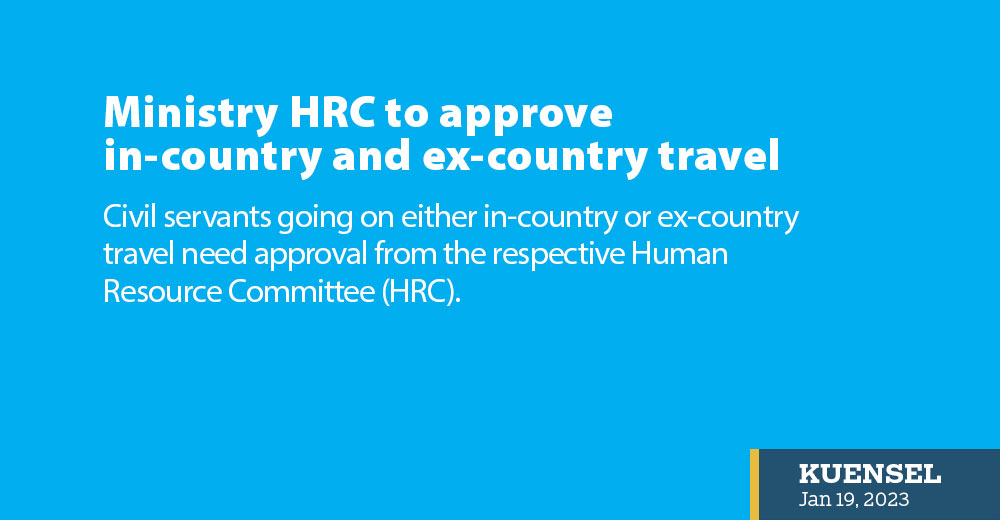… to curb table tour
Dechen Dolkar
Civil servants going on either in-country or ex-country travel need approval from the respective Human Resource Committee (HRC).
The Cabinet issued a directive to implement the approval process on September 22, last year.
According to chapter 9.3.1 of BCSR 2018, the HRC of the agencies will ensure that only relevant and appropriate officials are nominated for the Human Resource Development (HRD) programmes.
BCSR 2018, chapter 16.2.6 states that all ex-country travel will require the approval of the HRC.
The Royal Audit Authority (RAA) has also conducted a performance audit report on ex-country travel and pointed out the cases of training availed without obtaining approval from the HRC for the financial year 2018-2019.
It was pointed out that during the financial year, 68 officials in different agencies availed of short-term Training (STT) without approval from the HRC.
The Cabinet’s directive states that the approval of travel for officials below secretaries will be approved by the HRC of the respective ministries irrespective of funding sources through proper assessment of the outcome, need and cost implications of the travel.
The directive also mentioned that ministers will approve the official travels of the secretaries. The minister and the HRC will be accountable for any lapses.
Cabinet Director Chencho said that the reason for making both in-country and ex-country travels more stringent is to reduce unnecessary expenditure since the country’s economy is not doing well.
He also said that there were cases and reports in the past on misuse of travel allowance and daily subsistence allowance. “Some claim money without travelling.”
The director said that the HRC can scrutinise the unnecessary travel and training that the official has proposed.
“In most of the cases, the training was conducted in the hotels which could be conducted in the office, resulting in unnecessary expenses,” the Director said.
“All official travels of ministers or secretaries and accompanying officers will be approved by the Prime Minister,” the Cabinet directive states.
Similarly, heads of Constitutional bodies and others who require additional funds over and above the approved travel budget provisioned through the block grants will be approved by the Prime Minister.
The erstwhile Ministry of Economic Affairs notified on November 7, last year that the ministry will implement the in-country approval process with immediate effect. It stated that for travel of P2 and below officials, the head of the department or regional directors will be the approving authority.
It also states that for travel of P1 and above officials, but below secretary, the HRC will be the approving authority.


